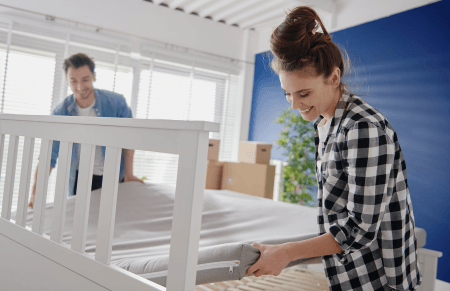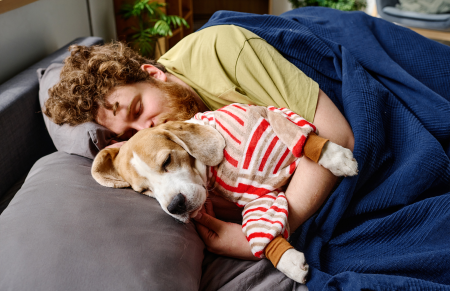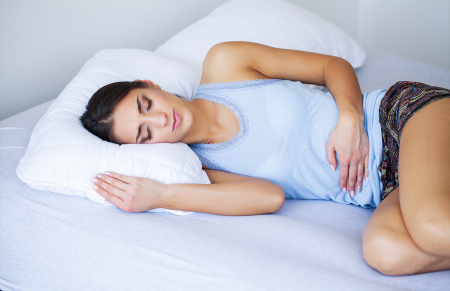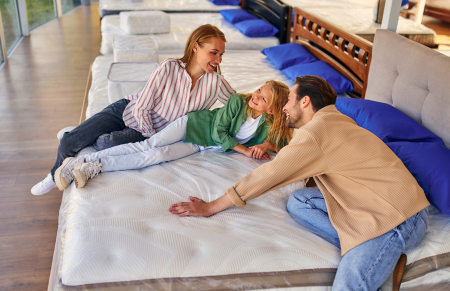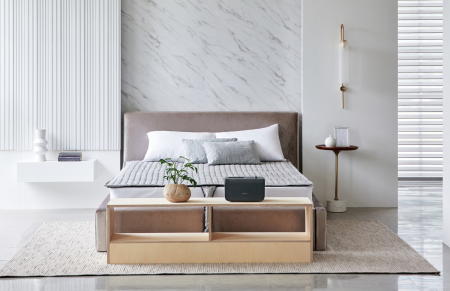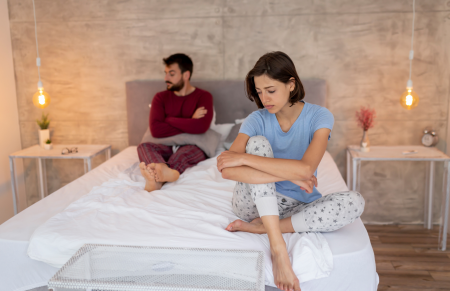By now, there’s no sleeping on the global pandemic called COVID-19, a flu-like respiratory illness caused by a new strain of coronavirus.
The virus can spread quickly from person-to-person contact so the World Health Organization has called for social distancing measures to halt its spread. As of this week, lockdowns across the country are being implemented in hopes of limiting person-to-person contact, effectively containing the virus.
Still, there may be some risk of contracting the virus even inside the comfort of our homes, particularly when we are at our most vulnerable: during sleep. In this article, we break down why this is so, and what steps we can take to minimize COVID risk while we sleep.
How to Protect Yourself From COVID While You Sleep
Why We’re Vulnerable to COVID During Sleep
The coronavirus targets cells located below the voice box – namely those in respiratory airways like the trachea, bronchus, and the small channels deep in the lungs called the bronchioles.
Once we inhale the virus, it adheres to the fluid in our respiratory airways. The fluid then conveys the virus down our trachea, bronchus, and bronchioles deep into the lungs (a process called aspiration), where it takes root and kickstarts the disease process.
About 50% of normal people aspirate at night during their sleep. This is not typically a cause for illness on a regular day, because most of the microorganisms that enter the lungs this way are not virulent bugs like the coronavirus. Furthermore, our lungs have white blood cells that clean up any microorganisms that may make their way there.
However, if your immune system is weak or compromised, the coronavirus can easily overcome it and allow the disease to progress.
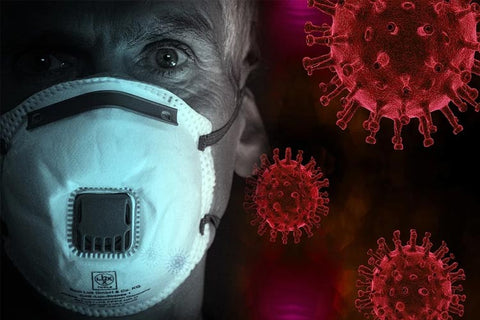
How to Minimize COVID Risk During Sleep
Coming down with COVID-19 may come down to two major factors: your vulnerability to infection, and your exposure to it. In a roundabout manner, getting enough sleep actually helps you become less vulnerable to infection, but you’re also prone to becoming infected during the hours that you’re not awake.
The following items outline a number of ways to limit your exposure to the virus when you sleep!
Keep Your Bed Clean
Although the coronavirus stays suspended in the air for hours, eventually they will fall by virtue of gravity. When someone who has the virus sneezes or coughs, the virus can be transferred onto the surface they sneezed on. The same is true for when they cough into their hands then touch an object.
We can then pick up the virus by making contact with the surface or object that the sick person coughed on, and inoculate ourselves with the virus when we touch our mouth or nose with our hands. This is why it’s important to regularly wash our hands and disinfect surfaces.
One way to keep ourselves safe from the virus as we sleep is to ensure our bed remains uncontaminated by microorganisms like the coronavirus. If you went out today, don’t let your bags, shoes, or outside clothes touch the bed. Toss dirty clothes straight into the laundry hamper, and shower with soap and warm water before lying down. It is also a good idea to change your sheets and pillowcases often.
Wash Your Face Before Bed
The best defense we have from the coronavirus is disinfection. To get rid of any coronavirus droplets lurking around your face before sleeping, wash your hands and face with soap and warm water. You may also want to clean inside your nostrils and blow your nose before bed.
Furthermore, don’t skip brushing your teeth and gargling with antiseptic mouthwash before sleeping. This will help minimize bacteria buildup in your mouth before sleep. Not practicing oral hygiene could lead to a throat infection, which increases your susceptibility to the coronavirus.
Skip the Sedative
Certain sedative drugs and substances cause dry mouth by decreasing saliva production. Saliva prevents the growth of microorganisms in the mouth, thus a dry mouth creates a conducive environment for bacteria to thrive.
Refrain from using substances that cause dry mouth (such as tobacco and alcohol) during this time. If you must take medication, call your physician and see about reducing your dosage or switching to an alternative medication for the meantime.
In your waking hours, make sure to drink water to rehydrate.
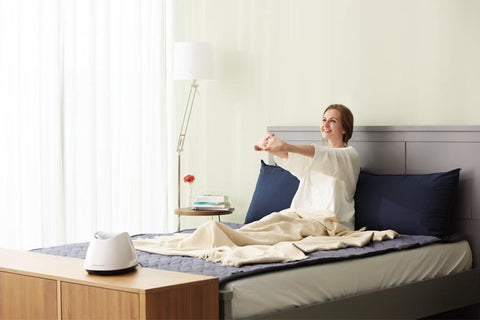
Get Enough Sleep
You’re more susceptible to the coronavirus if you’ve got a weakened immune system. Now, more than ever, it’s vital that you carry out steps to boost your immune system: take your vitamins, eat healthy food, and get enough sleep.
Studies show that being sleep-deprived causes the immune system to crash. Going just one night without enough sleep causes a decrease in a type of white blood cell called natural killer cells (NK cells) that fend off infection. This occurs along with a spike in cytokines that cause inflammation, increasing the chances of illnesses.
During this health crisis, do your best to clock in a full 6 to 8 hours of sleep every night. Being well-rested can help you cope with the stress of a global pandemic, both mentally and physically.
Here are some things you can do to promote sleep:
Set a regular sleeping schedule.
Many places in the US are undergoing lockdowns and quarantines to contain the coronavirus. One way to cope with the uncertainty during this period is to structure your daily activities. A structure can make an extended stay indoors feel calmer and more predictable.
In particular, setting a regular sleeping schedule effectively trains the body to prepare for sleep at a certain time, so it’s easier to drift off and fall asleep by the time your body hits the bed.
Create a bedtime routine.
Block out the time before bed with activities that relax you. Take a warm shower to loosen your muscles, drink a glass of hot milk, and wash your hands and face. With repetition, this will signal your brain that once this routine starts, the day is ending and it’s time to go to sleep.
Use items that promote sleep
You’re more likely to look forward to sleep if your bed is inviting. Fill your sleeping space with relaxing items like firm pillows, soft blankets, and a heated mattress pad to promote sleep. You may also want to wear your comfiest pajamas; if you’re stuck at home for a few weeks, you might as well pretend it’s an extended sleepover!
Put your phone down
Blue light from your devices sends signals from your eyes to your brain to wake up rather than to shut down and go to sleep. Not to mention, with a pandemic rampaging throughout the world, our social media feeds and news channels are churning out stressful reports 24/7. While it’s important to stay updated, bedtime is not when you should be scrolling through the news.
Commit to putting your devices away at least 30 minutes before you lie down. Keep a book by your bedside instead so your eyes have something to do while trying to fall asleep. You can always catch up on the latest updates tomorrow.
Go to Sleep Instead of Reading This!
The biggest contribution we can make towards solving this health crisis is keeping ourselves healthy and fit. Washing our hands, preventing contamination in our homes, and getting enough rest and sleep are all ways we can achieve this.
In the meantime, consider purchasing a heated mattress pad from Navien Mate to make the days spent indoors go by warmly and comfortably.
Sleep safely!

